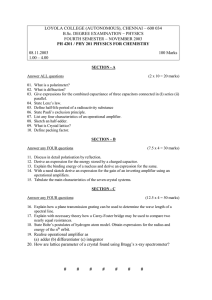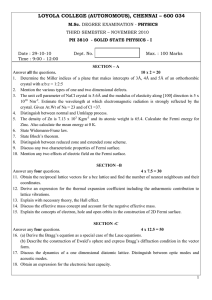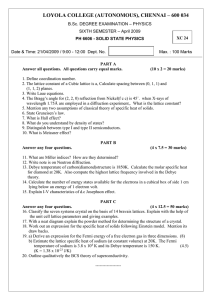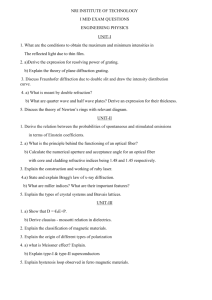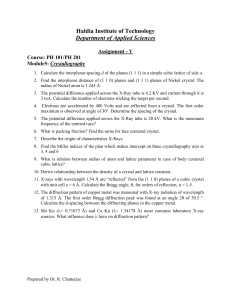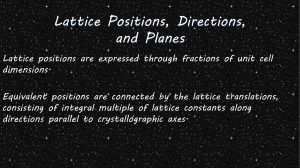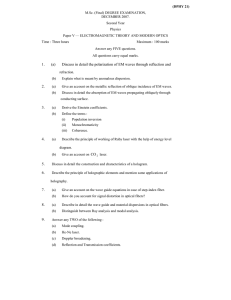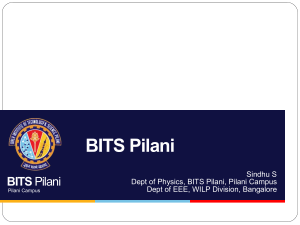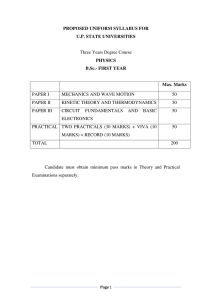LOYOLA COLLEGE (AUTONOMOUS), CHENNAI – 600 034
advertisement
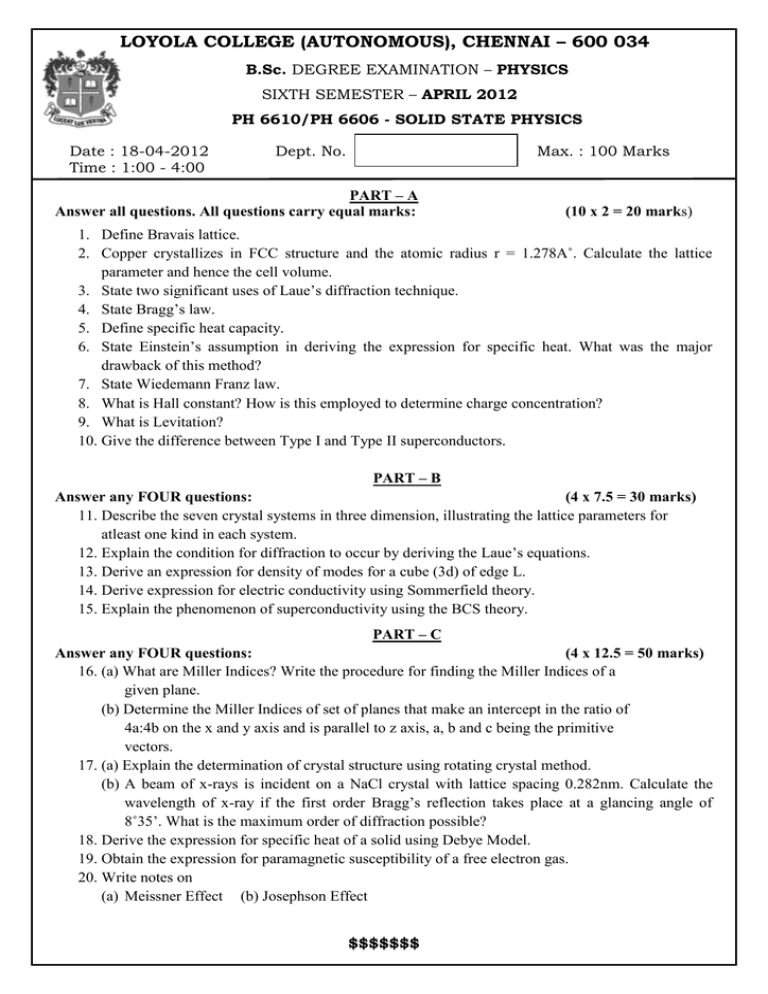
LOYOLA COLLEGE (AUTONOMOUS), CHENNAI – 600 034 B.Sc. DEGREE EXAMINATION – PHYSICS SIXTH SEMESTER – APRIL 2012 PH 6610/PH 6606 - SOLID STATE PHYSICS Date : 18-04-2012 Time : 1:00 - 4:00 Dept. No. Max. : 100 Marks PART – A Answer all questions. All questions carry equal marks: (10 x 2 = 20 marks) 1. Define Bravais lattice. 2. Copper crystallizes in FCC structure and the atomic radius r = 1.278A˚. Calculate the lattice parameter and hence the cell volume. 3. State two significant uses of Laue’s diffraction technique. 4. State Bragg’s law. 5. Define specific heat capacity. 6. State Einstein’s assumption in deriving the expression for specific heat. What was the major drawback of this method? 7. State Wiedemann Franz law. 8. What is Hall constant? How is this employed to determine charge concentration? 9. What is Levitation? 10. Give the difference between Type I and Type II superconductors. PART – B Answer any FOUR questions: (4 x 7.5 = 30 marks) 11. Describe the seven crystal systems in three dimension, illustrating the lattice parameters for atleast one kind in each system. 12. Explain the condition for diffraction to occur by deriving the Laue’s equations. 13. Derive an expression for density of modes for a cube (3d) of edge L. 14. Derive expression for electric conductivity using Sommerfield theory. 15. Explain the phenomenon of superconductivity using the BCS theory. PART – C Answer any FOUR questions: (4 x 12.5 = 50 marks) 16. (a) What are Miller Indices? Write the procedure for finding the Miller Indices of a given plane. (b) Determine the Miller Indices of set of planes that make an intercept in the ratio of 4a:4b on the x and y axis and is parallel to z axis, a, b and c being the primitive vectors. 17. (a) Explain the determination of crystal structure using rotating crystal method. (b) A beam of x-rays is incident on a NaCl crystal with lattice spacing 0.282nm. Calculate the wavelength of x-ray if the first order Bragg’s reflection takes place at a glancing angle of 8˚35’. What is the maximum order of diffraction possible? 18. Derive the expression for specific heat of a solid using Debye Model. 19. Obtain the expression for paramagnetic susceptibility of a free electron gas. 20. Write notes on (a) Meissner Effect (b) Josephson Effect $$$$$$$
